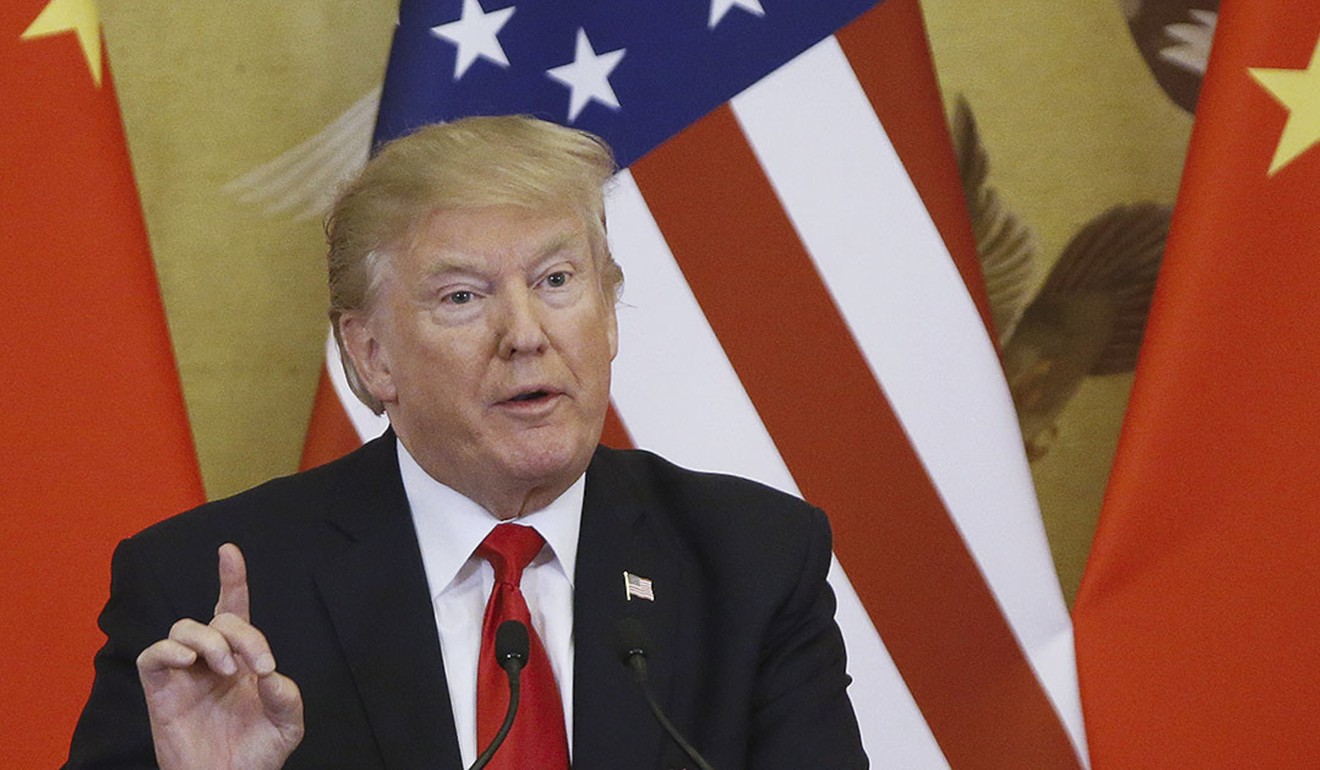
US House backs US$675 billion defence budget and a ban on ZTE and Huawei sales to Pentagon
The 359-49 vote sends the bill to the US Senate, where the Appropriations Committee approved a similar measure this week

The US House of Representatives on Thursday approved a US$675 billion spending bill for the Defence Department that includes a 2.6 per cent raise for the military and an amendment that bars the Pentagon from buying goods or services from Chinese telecommunications euipment suppliers ZTE Corp and Huawei Technologies.
The 359-49 vote sends the bill to the US Senate, where the Appropriations Committee approved a similar measure this week.
ZTE is accused of violating trade laws by selling sensitive technologies to North Korea and Iran. Huawei allegedly has ties to the Chinese government and is considered a security risk.

“Broad majorities of Democrats and Republicans in Congress know that China has led a dedicated and long-term campaign to steal American secrets, techniques and know-how,” Representative Ruben Gallego, an Arizona Democrat who wrote the amendment about ZTE and Huawei, said in a statement.
He called his amendment “a small step in a larger fight to build a comprehensive strategy to defeat and deter Chinese attacks on our national and economic security”.
US President Donald Trump met with Republican lawmakers last week after the Senate moved to block a White House plan to allow ZTE to buy component parts from US suppliers.
Scrutiny over the ZTE agreement comes as the Trump administration has been engaged in a sweeping trade dispute with China.
Trump has ordered tariffs on US$50 billion in Chinese goods in response to Beijing’s forced transfer of US technology and intellectual property theft.

Representative Kay Granger, a Texas Republican who chairs the defence appropriations subcommittee, said that the bill provides the military with needed resources “to respond to and deter threats from countries like Russia, China, Iran and North Korea, and also counter violent extremists throughout the world”.
The House bill provides US$146 billion for equipment and upgrades, including US$22.7 billion for 12 Navy ships, two Virginia-class submarines and three fast-moving littoral combat ships. The ships are intended to combat small boats and mines in congested areas near shorelines.
The bill also includes US$9.4 billion for 93 F-35 aircraft and more than US$4 billion for Black Hawk, Apache and other helicopters.
Representative Paul Ryan, the House speaker, called the funding bill crucial to the nation’s defence and said that it provides the biggest pay raise for service members in nine years.
The bill also addresses what Ryan, a Wisconsin Republican, called a “military readiness crisis”.
Over the last five years, aviation accidents have led to the deaths of 133 Americans, Ryan said – a “grave trend” that the bill seeks to reverse. The bill includes nearly US$246 billion to boost training, maintenance and other military readiness programmes.
“We’re taking steps to make sure more lives aren’t lost because of outdated, subpar equipment,” Ryan said, adding that lawmakers were “keeping our promise to build a 21st century military worthy of the sacrifices made by the men and women who serve”.
Representative Rob Wittman, a Virginia Republican who is chairman of a House Armed Services subcommittee on sea power and projection forces, also cited a “readiness crisis”, noting that 80 military casualties occurred last year during peacetime training and operations, compared with 24 deaths in combat operations.
“We are finally getting our readiness back on track and providing our service members with the resources they desperately need. We can’t afford to stop now,” he said.